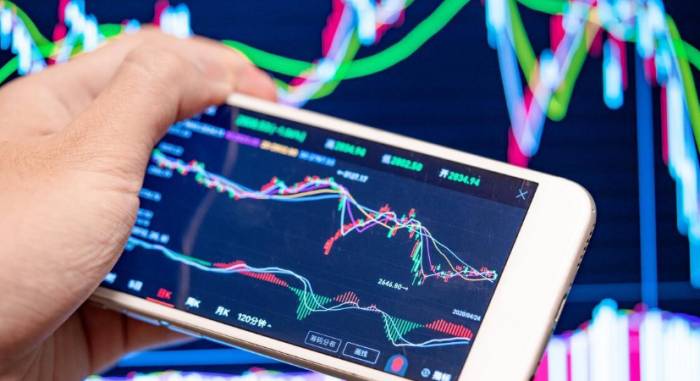The differences in profits and losses in trading are not only influenced by technical operation factors, but more by psychological factors. Every trader must learn to deal with market challenges and their own trading psychology in order to successfully develop from a novice to an expert. This week's newsletter invited three experienced traders to share their insights on managing and controlling trading psychology.
Gavin McMaster with ten years of trading experience:
Frequent trading is a disaster for retail traders. Stay away from the trading screen and don't always focus on every minor market movement. This will only bring more pressure to the trader, which can easily lead to higher error rates in decisions. I think the best approach is to set a few specific times a day to log in to the broker's account.
Fear and self-doubt, overreaction and overconfidence, these can all bring harmful emotions to investors who are not cautious enough. To avoid being interfered and influenced by these emotions, I usually choose to stop trading after three consecutive failures. There is another situation where I will stop trading, and that is when I have reached my target for the day or the week.
Michael G Lamothe with eight years of trading experience:
I prepare for the day's trading before the market opens every day, such as: first, develop a system that suits me, which must be tested in practice and can cope with the current market environment. Then, make a trading plan, including trading time frame, entry point, exit point when the trading decision is wrong (protective stop loss), trailing stop loss, percentage of funds invested in the position, and whether this trade is in line with my current asset portfolio.
Advertisement
In addition to the initial entry and protective stop loss, my actions are determined by the activities at the end of the trading day or week. I usually do not check my account unless it is necessary to take action. At the same time, I know what actions to take before the execution of the trade.Steve with Twelve Years of Trading Experience
I recommend that all traders should formulate a trading plan, including the entry and stop-loss of trades, as well as how to manage trading strategies. Do not wait until after entering a trade to plan these according to your account balance. Additionally, it is often seen that people emphasize that emotional or psychological factors will lead to failed trades, but the reverse is also true.
Emotional loss of control is usually caused by two reasons: 1, poor risk management; 2, lack of flexibility. The combination of these two factors will cause unstable profits, which in turn causes emotional fluctuations. Traders should first recognize the source of pressure and correct it. The common saying "follow your own process" is not helpful, because sometimes the process itself has been misled.
In summary, several trading experts have summarized the following three bottom lines that any trader who wants to make a profit must adhere to:
Eliminating trading emotions is the key to success
The most difficult thing about investing is the game with human nature. The biggest opponent in trading is not the market, but the emotions of the trader himself. Traders are usually greatly influenced by the emotions of fear and greed. Learning how to control emotions or eliminate emotions is the first step to successful trading.
Fear and greed, or trying to defeat the market, will not only reduce the chances of winning trades, but also make losses out of control. Many senior traders often have the habit of keeping trading records, and they believe that records are the best emotional perception.
The essence of trading is an investment
Trading is actually a form of investment and financial management, with almost no emotional space, and discipline in operations is very important. Letting emotions control trading decisions is the most common mistake made by traders. Traders without a sense of discipline are often easily affected by market fluctuations. After a trade, their mood is like a roller coaster, with ups and downs, and they turn a blind eye to discipline issues.Traders make irrational judgments based on their preferences and engage in arbitrary operations. They hesitate when they should exit, which often leads to greater losses or reduced profits. Therefore, to reduce the impact of emotions on trading, traders must adhere to trading discipline.

The market is a movement of public psychology.
Humans are the main catalysts for market changes, and market movements are the movements of public psychology. In other words, the golden rule of trading is to treat the trend as a friend, persist in trend-following trading, and not deviate from the market due to market competition. The reason for many traders' losses is that they fail to realize that market charts are a manifestation of the collective psychology of participants. Successful traders, on the other hand, focus on studying price action and volume relationships, which helps guide their trading.
Learn to think independently and analyze problems objectively, fully apply the understanding of trading to actual operations, in order to overcome bad trading psychology.
Comment